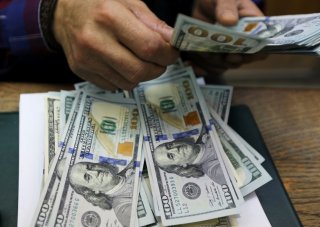GameStop Stock is Going Up Again – But It Isn’t a “Short Squeeze” This Time
Video game retailer GameStop, famous for its massive price spike in January 2020, is once again in the news.
Video game retailer GameStop, famous for its massive price spike in January 2020, is once again in the news. On Tuesday afternoon, the stock shot up 15% in a day, an increase reminiscent of the daily trading increases during January. It has been speculated on the Internet that the price spike is indicative of a renewed “short squeeze” on the stock. However, this is probably not accurate; instead, the increasing demand seems to have been fueled by more mundane factors.
How does a short squeeze work?
In essence, if you believe that a certain stock will decrease in value, you can short sell, or “short,” the stock. To do this, you borrow shares from a broker, with a promise to pay them back in the future, and sell them at the current market rate. In the case of GameStop, if you believed that its market price would decrease, you could make money by borrowing shares at the current market price – say $40 apiece – waiting for the price to drop to $30, buying the shares back, giving them to your broker to close out the debt, and making a profit of $10 per share.
The danger inherent in shorting, however, is that there is theoretically no upper limit to your losses. If you buy a share of stock conventionally, and it loses all of its value, the most you stand to lose is $40. By contrast, if you short a stock at $40 and it rises to $500 (as GameStop nearly did in January 2021), this means that you will owe $460, far more than your initial investment.
This makes stock shorting inherently much riskier than traditional buying and selling. To avoid an outcome like this, many investment firms that engage in shorting plan to close their positions automatically after a certain price increase. By doing so, they will take a certain loss, but avoid the prospect of a much larger one.
However, in order to escape a short position, the firm in question needs to buy the stock to cover its debts. In doing so, it creates a larger demand for the stock and drives the price up further, creating a “short squeeze.”
This makes any stock that is heavily shorted vulnerable to price spikes. And in January 2021, GameStop was one of the most heavily shorted stocks on Wall Street, owing to competition from online retailers such as Steam. This logic went out the window when Reddit forum r/wallstreetbets intervened; while the price later fell from the $400 range, it has remained in the $150-200 range since March, far higher than its level in early January 2020.
May’s price increase, however, likely is not the result of a short squeeze. Most Wall Street firms which shorted GameStop in January have since steered clear of it; altogether, the number of shorts on GME is 80% lower in May than it was in January. Instead, the current price increase – roughly a 20% increase in one day – seems to be fueled purely by renewed interest from the Internet, with other “meme” stocks such as AMC and KOSS experiencing similar increases.
Trevor Filseth is a news reporter and writer for the National Interest.

